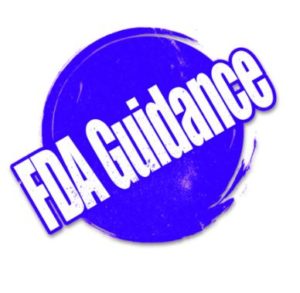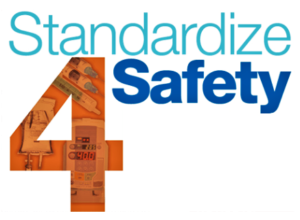- This Week in Managed Care: February 10, 2017 (ajmc.com)
Laura Joszt, assistant managing editor at The American Journal of Managed Care. Welcome to This Week in Managed Care from the Managed Markets News Network
- VA Shifts To Clinical Pharmacists To Help Ease Patients’ Long Waits (khn.org)
Something astonishing has happened in the past year to outpatient treatment at the Veterans Affairs hospital here...Vets regularly get next-day and even same-day appointments for primary care now, no longer waiting a month or more to see a doctor as many once did...The reason is they don’t all see doctors. Clinical pharmacists — whose special training permits them to prescribe drugs, order lab tests, make referrals to specialists and do physical examinations — are handling more patients’ chronic care needs. That frees physicians to concentrate on new patients and others with complex needs...A quarter of primary care appointments at the Madison hospital are now handled by clinical pharmacists…It’s having a significant impact on reducing wait times and our office is trying to expand more of them nationally to increase access...VA hospital officials in both Madison and El Paso said they faced challenges initially in persuading doctors to delegate some duties to qualified pharmacists...Some physicians feel like it’s a turf war and don’t want to refer their patients because they feel the clinical pharmacist is trying to practice medicine...
- FDA Advises Against Fluoroquinolone Antibiotic Use for Uncomplicated Infections (pharmacytimes.com)
Serious side effects associated with fluoroquinolones generally outweigh the antibiotics’ benefits for patients with uncomplicated infections like sinusitis and bronchitis…the FDA determined that systemic use of fluoroquinolones is associated with "disabling and potentially permanent serious side effects that can occur together" involving the tendons, muscles, joints, nerves, and central nervous system...The alert comes a year after the FDA convened an advisory committee to review the risk-benefit balance for fluoroquinolones...the risk wasn’t worth the potential benefit for patients with sinusitis, bronchitis, and uncomplicated urinary tract infections, for which other treatment options exist...Labels and medication guides for all fluoroquinolones will be updated to reflect the FDA’s findings...
- Non-pharmacologic Treatment Options for Opioid-Induced Constipation (pharmacytimes.com)
Daniel T. Abazia, PharmD, BCPS, discusses some of the non-pharmacologic treatment options that pharmacists can recommend to patients experiencing opioid-induced constipation.
- Pharmacy Week in Review: February 10, 2017 (pharmacytimes.com)
Brian Haug, President of Pharmacy and Managed Markets, Pharmacy Times (PTNN) This weekly video program highlights the latest in pharmacy news, product news, and more.
- Electronic prescriptions associated with less nonadherence to dermatologic Rx (medicalxpress.com)
Does how a prescription for dermatologic medicine is written - either on paper or electronically—matter when it comes to whether patients will fill it and pick it up?...A new study...used data from a large, urban county health system to measure primary nonadherence—defined as not filling and picking up all dermatologic prescriptions within one year of the prescription date—and to study whether electronic prescribing impacted primary nonadherence...electronic prescribing increases the coordination between pharmacists and clinicians, less is known about how electronic prescribing affects the rate at which patients will fill or won't fill new prescriptions...The risk of primary nonadherence was 16 percentage points lower among patients given electronic prescriptions than patients given paper prescriptions...As the health care system transitions from paper prescriptions to directly routed e-prescriptions, it will be important to understand how that experience affects patients, particularly their likelihood of filling the prescriptions. Primary nonadherence is a common and pervasive problem. Steps should be taken to better understand why primary nonadherence happens and how it can be improved...
- Pharmacists Should Target ACS Patients with Low Health Literacy (pharmacytimes.com)
Patients with limited health literacy are especially vulnerable to medication-related problems that contribute to hospital readmissions...recently published a study that shows targeted pharmacist interventions may reduce unplanned health care utilization among patients with limited health literacy...This...study employed medication reconciliation, inpatient counseling, low-literacy adherence aids, and individualized telephone follow-up to reduce 30-day hospital readmissions. It enrolled patients with acute coronary syndrome and acute decompensated heart failure...pharmacist intervention...reduced health care utilization...primarily through decreased emergency department visits...Patients with limited health literacy have more to gain from pharmacist intervention. They face barriers to care that pharmacists can help bridge...targeting patients with low health literacy to produce the greatest benefit with limited resources. The researchers recommended stratifying patients based on health literacy at admission and including pharmacist-driven medication-related problem interventions in a multidisciplinary and multifactorial initiative.
- ISMP Report Questions Safety of Hepatitis C Drugs (pharmacytimes.com)
A recently-published Institute for Safe Medication Practices report details updated concerns about newer drugs used to treat hepatitis C virus. The report, which is published in ISMP’s QuarterWatch, highlights concerns about the safety of HCV drugs in light of findings that point to associated liver failure and injury...The FDA designated 46 different drugs in development as breakthroughs last year, and although some of these medications have resulted in cure in an estimated 9 out of 10 patients treated, ISMP has identified hundreds of patients that reported antiviral failure...Liver failure occurred more frequently in men (55%) and in patients with a median age of 61 years old. Thirty one percent of cases resulted in death...Although the report questions the safety of these drugs, experts argue that the findings are inconclusive and prescribers should not be influenced by the results...These new data raise more questions than they resolve about the adverse effects of direct-acting antiviral drugs...A better understanding of what is occurring in hundreds of additional liver failure cases should be a priority for further investigation...
- Medication Standardization Effort Aims to Improve Patient Safety (ashp.org)
...the reason a pharmacy prepares a specific concentration of an i.v. or oral liquid medication has little to do with clinical or patient safety considerations...the pharmacy staff follows standard recipes because "they've always done it that way," said Pasko, director of ASHP's Center on Medication Safety and Quality and principal investigator for ASHP's Standardize 4 Safety campaign...Pasko hopes the campaign will change that mindset and result in consistency, at the national level, in how i.v. and oral liquid admixtures are formulated for patient use..."We're really trying to emphasize to everyone that this is a patient safety effort,"..."We're putting patients at risk every day when we dispense a different concentration than what someone else does."...Standardize 4 Safety has put together an interprofessional panel of experts to propose voluntary, evidence-based standardized concentrations for 32 i.v. medications associated with a high risk of patient harm due to dosage errors...ASHP has urged pharmacists to get involved with the Standardize 4 Safety community through its online communication platform on ASHP Connect...
- Many seniors using dangerous drug combinations (cbsnews.com)Changes in Prescription and Over-the-Counter Medication and Dietary Supplement Use Among Older Adults in the United States, 2005 vs 2011 (abst) (archinte.jamanetwork.com)
One in six seniors in the U.S. regularly uses potentially dangerous combinations of prescription and over-the-counter medications and dietary supplements, according to new research...This is a major public health problem...Many of these potentially deadly drug interactions involve prescription and non-prescription medications and supplements that are not only commonly used, but are increasingly being used by older adults. While it is not known how many older adults...die of drug interactions, the risk seems to be growing and public awareness is lacking...study authors identified 15 potentially life-threatening drug combinations...health care providers should carefully consider the potential adverse effects of commonly used prescription and nonprescription drug combinations...and counsel their patients about the risks...Improving safety in the use interacting medication combinations has the potential to reduce preventable, potentially fatal, adverse drug events...We need to create systems that support an ongoing process of monitoring medications...Such systems would help us periodically assess the benefits, harms and ongoing need for each of a patient's medications, as well as the reasonableness of the medication regimen as a whole. These systems could also help physicians with deprescribing, for example by supporting gradual down-titration of a medication and monitoring patients for adverse drug withdrawal reactions after a drug is stopped...








